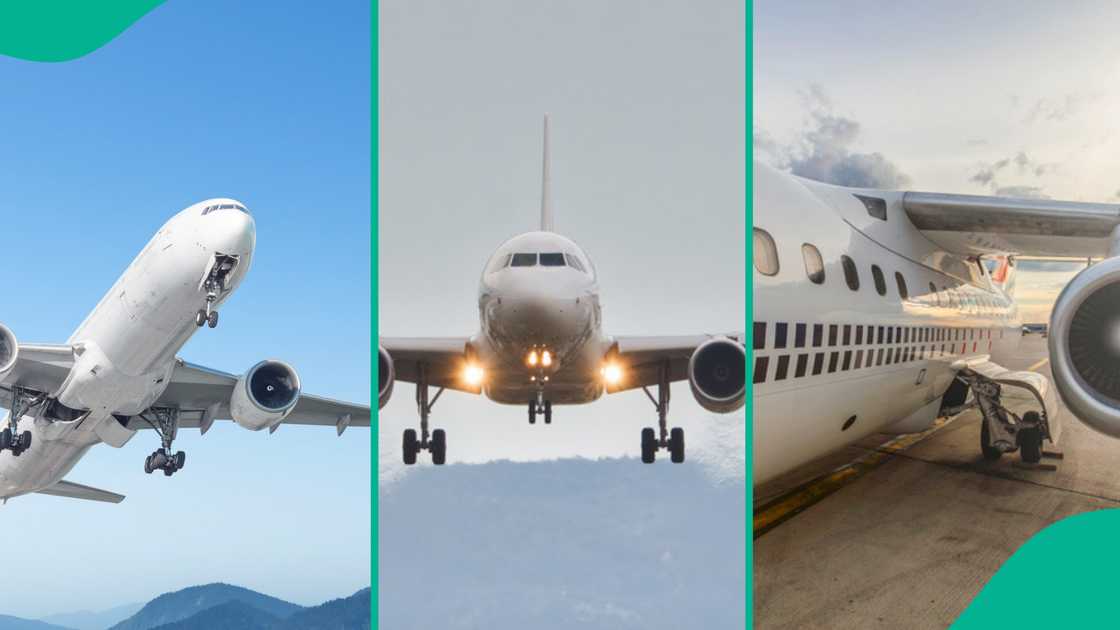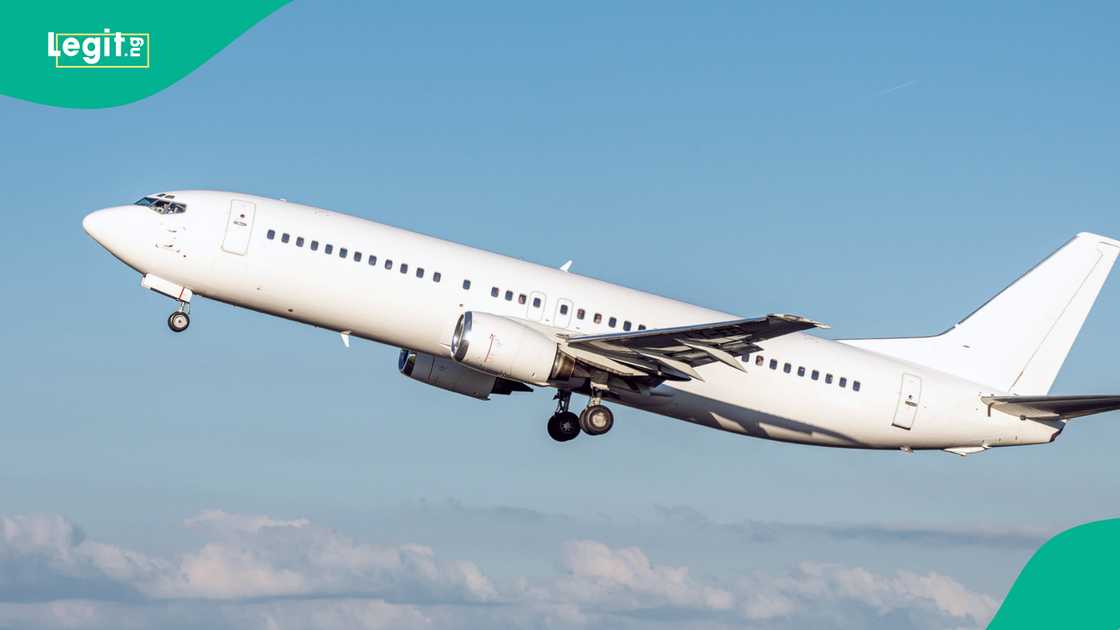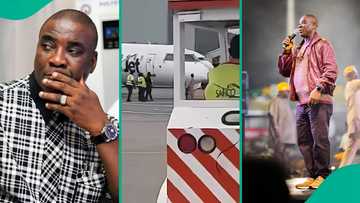Why 4 Young Nigerians Hijacked Lagos-to-Abuja Flight in 1993
- In 1993, four young Nigerians hijacked a domestic flight to protest the annulled presidential election, marking the country’s first-ever plane hijacking
- Armed with petrol and fake weapons, the group triggered a tense three-day hostage crisis that exposed glaring security lapses at Lagos airport
- Their dramatic act was a bold call for democracy following the controversial cancellation of Nigeria’s June 12 election
In a dramatic and unprecedented event, four young Nigerian men hijacked a domestic flight in 1993, marking the first known plane hijacking in the country’s history.
The incident, which unfolded aboard Nigeria Airways flight WT470, shocked the nation and drew global attention to Nigeria’s turbulent political climate.

Source: Getty Images
Hijacking Nigeria Airways Flight WT470
On 25 October 1993, passengers aboard a routine Lagos-to-Abuja flight were jolted into panic when 19-year-old Richard Ogunderu stood up and made a chilling announcement.
“Ladies and gentlemen, this plane has been taken over by the Movement for the Advancement of Democracy (MAD). Remain calm, we will not harm you. You will be told where the plane will land you,” Ogunderu declared.
Ogunderu, fresh out of secondary school and preparing to study in Canada, was joined by Kabir Adenuga (22), Kenny Rasaq-Lawal (23), and Benneth Oluwadaisi (24). Together, they commandeered the aircraft in a desperate bid to protest Nigeria’s political instability and the annulment of the June 12 presidential election.
Security lapses enabled the hijack
The hijackers smuggled petrol, lighters, tear gas, jack knives, and what they later claimed were fake guns onto the plane. The ease with which they boarded with such dangerous items was attributed to a critical security failure: the walk-through metal detector at Lagos airport’s domestic wing had been broken since 1987 and remained unrepaired.
Once in control, the group doused the cabin—and themselves—with petrol, heightening the tension and fear among the passengers. Their actions triggered a three-day hostage crisis that gripped the nation.
June 12 election fallout
The hijacking was rooted in the political unrest following the annulled June 12, 1993 presidential election. Under military ruler Ibrahim Babangida, Nigeria had been promised a transition to democracy.
After nearly a decade in power, Babangida’s regime permitted the formation of two political parties, which led to governorship and parliamentary elections in 1991 and 1992 respectively.
The presidential race between MKO Abiola and Bashir Tofa was seen as a beacon of hope for many Nigerians. Abiola, widely believed to have won, was poised to usher in a new democratic era. However, Babangida controversially annulled the election, citing electoral irregularities—a move that sparked outrage and deepened national disillusionment.
The hijackers, identifying as members of the Movement for the Advancement of Democracy, sought to draw international attention to the political crisis and demand a restoration of democratic order.

Source: Getty Images
Ghana helicopter crash
Legit.ng earlier reported that on Wednesday, August 6, Ghana was thrown into mourning after a helicopter carrying eight people crashed.
The helicopter was travelling to the town of Obuasi, after taking off from Accra at 9:00 am.
Source: Legit.ng




